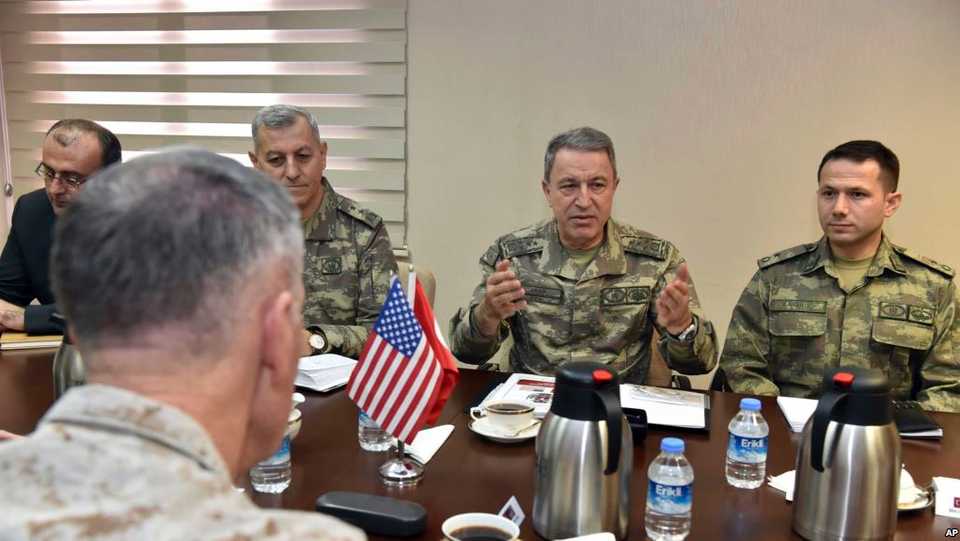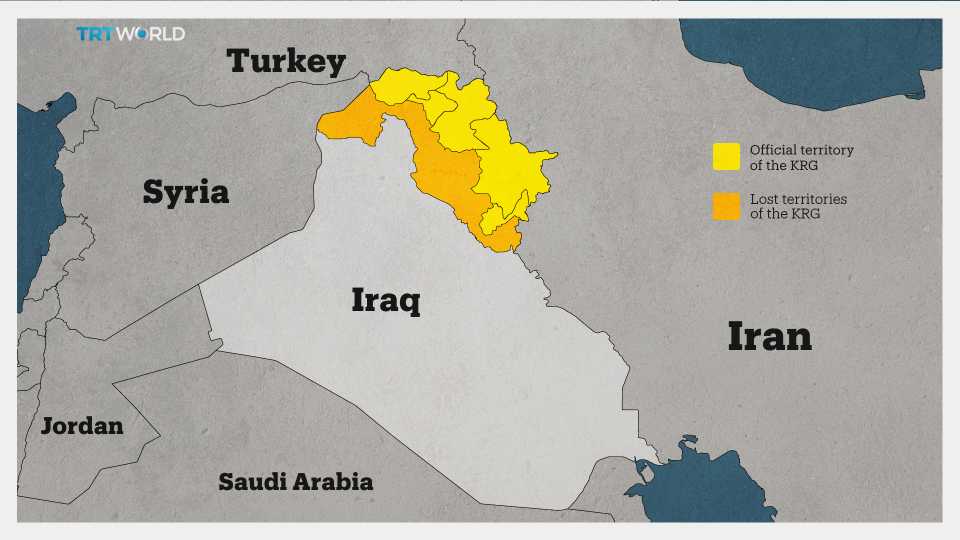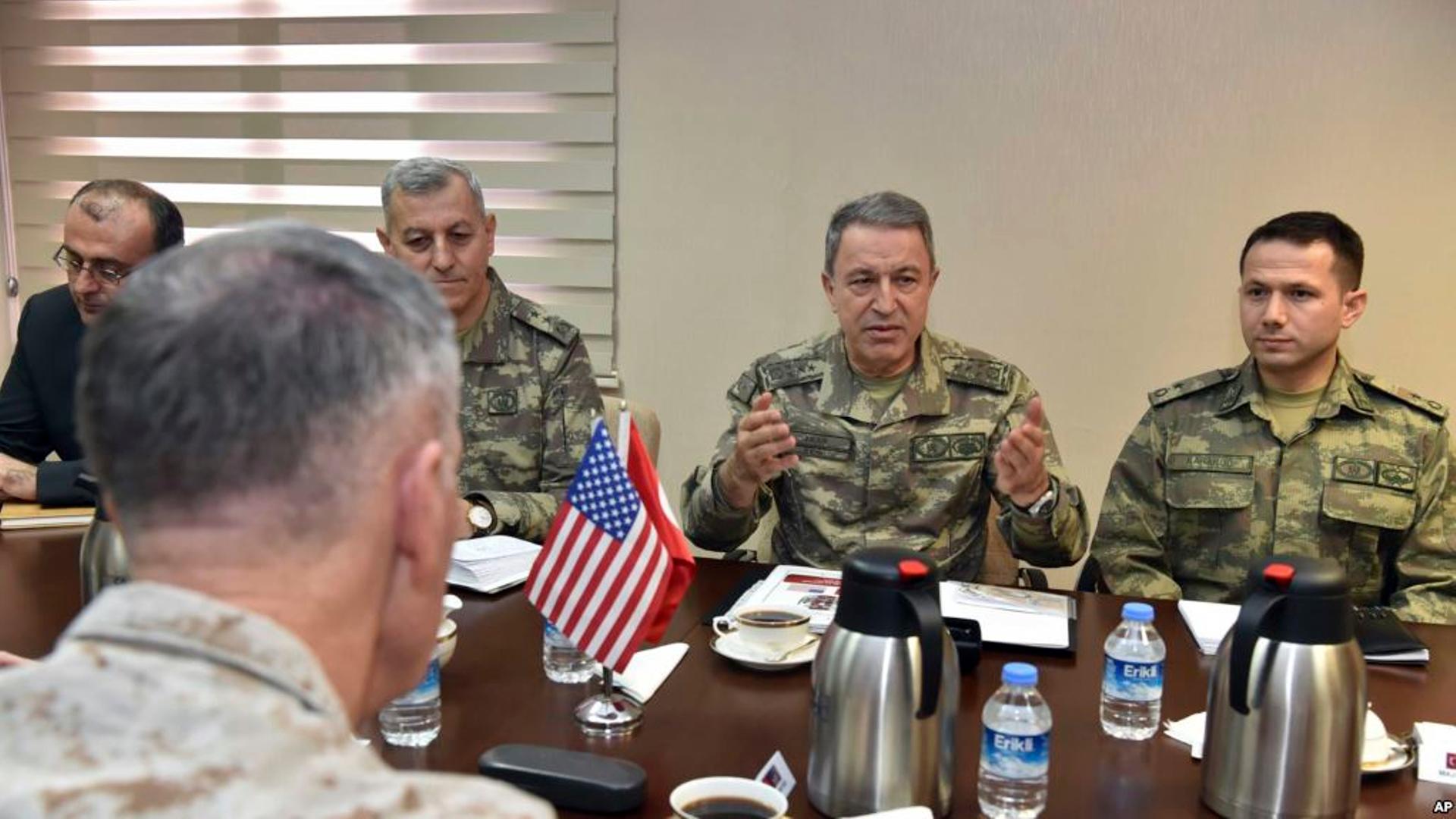
The Turkish army’s chief of staff hosted two US commanders and their Iraqi counterpart in Ankara on Thursday, at a time when Iraq has declared it defeated Daesh completely, after years of fierce fighting.
“At the meeting, the general security situation in the region, particularly in Iraq and Syria, and the measures required to be taken in the fight terrorist organisations were discussed,” Turkish Armed Forces said on Thursday where the US part also issued the same statement.
The generals discussed the post-Daesh era in Iraq, focusing on how to prevent any possible comeback of the group.
However, Daesh’s presence in Iraq is not the only concern for Turkey as it continues its fight against the PKK inside its borders and keeps alert against the YPG, the Syrian affiliate of the PKK.
Turkish-Iraqi relations
There had been tensions between Ankara and Baghdad over the continued presence of Turkish forces in a camp in the northern Iraqi town of Bashiqa.
Turkish forces have been stationed in Bashiqa following an invitation by Baghdad in order to train the semi-autonomous Kurdish Regional Government (KRG) Peshmerga forces in the fight against Daesh.
The Baghdad government, on the other hand, later considered the situation as “a move against its sovereignty”.
The KRG controls the northern part of the country, while the Baghdad government controls the rest.
The case had played a major role in the strained relations until Turkish Prime Minister Binali Yildirim and Iraqi Prime Minister Haider al Abadi reached an agreement over the gradual withdrawal of Turkish forces, unless there was a threat against Turkey by Daesh or the PKK in Iraq.
With the KRG’s unilateral decision to hold an independence vote, Ankara and Baghdad prioritised Iraq’s territorial integrity and intensified their co-operation.
Troops from both countries conducted joint drills near the Turkish border with Iraq, in a KRG-controlled area. Baghdad sought to take control of all the disputed areas which the KRG took control of under the guise of fighting against Daesh. And the Iraqi army pushed Peshmerga forces towards the 2005 borders, decided when Baghdad first officially accepted the semi-autonomous government.

Baghdad made a significant advance, but US CENTCOM officials put pressure on Iraqi forces to stop the advancement, in order to be able to continue “business with the KRG as usual”, a high-level security source who is familiar with the case told TRT World.
And now Iraqi officials say that Daesh was defeated in Iraq and the PKK was mostly stopped by the Iraqi army. The officials also discussed the role Bashiqa camp in a post-Daesh Iraq.
Turkish-American relations
Turkey and the US, two of the largest armies in NATO, have a long history of co-operation in many areas. Turkey is also a part of the US-led coalition against Daesh, as Ankara allows Turkey’s the use of Turkey’s Incirlik military air base for jets conducting air strikes in Iraq and Syria.
However, there has been a strain between Turkey and the US over the two countries’ approaches towards the PYD, as Washington has repeatedly described the group “a reliable partner” in the fight against Daesh.
Turkey considers the group to be a terrorist organisation, due to it being PKK’s Syrian affiliate. The PKK has been fighting the Turkish state for more than 30 years and has left more than 40,000 people dead, including civilians. It has been designated a terror group by Turkey, the US and the EU.
The US gave military and financial support for the group in Syria, and now they control nearly one-third of the country, as Daesh is about to also be defeated completely from Syria.
Thursday’s meeting also comes at a time when the US has released confusing statements on whether it would stop providing weapons to the YPG, as Washington has said that it would retrieve heavy weapons that were already given to the group.
Meanwhile, there has been anger against Generals Votel and Scaparrotti over their statement following Turkey’s failed July 15 coup attempt that killed at least 249 people and injured hundreds of others.
Less than two weeks after the coup attempt, Votel said that some Turkish officers with whom the US had close relationships had been imprisoned for their role in the coup attempt.
“We have certainly had relationships with a lot of Turkish leaders—military leaders in particular. I am concerned about what the impact is on those relationships as we continue,” he added in a statement that drew harsh criticism from Ankara, which said the Western allies had failed to show support in the post-coup era.
Votel’s statement was followed by Scaparrotti who also said, “Many of our interlocutors have been purged or arrested. There’s no question that this is going to set back and make more difficult the US’s Middle East strategy.”
The YPG issue was the main focus at Thursday’s meeting, and Turkey will once again push US officials to revise their support for the YPG.










Discussion about this post